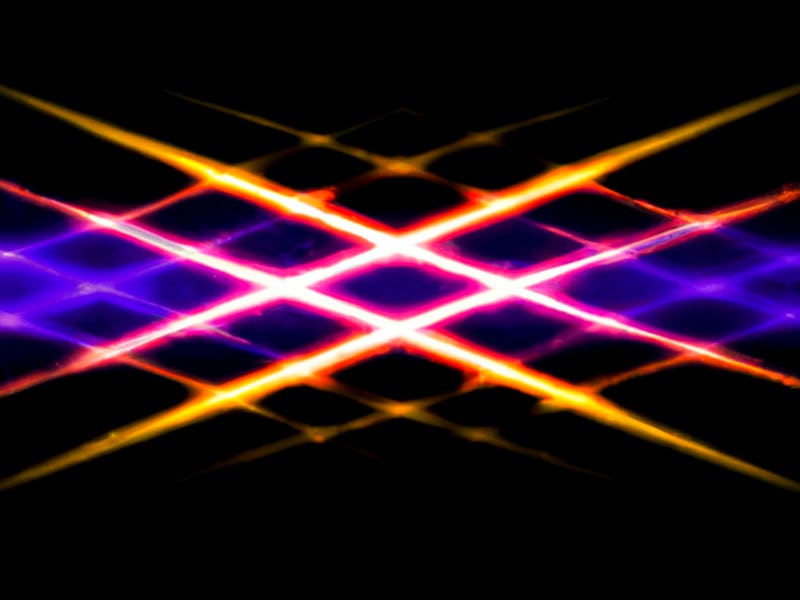Thanks to this new battery, EV charging just got a whole lot faster
The invention could solve a major frustration for electric car owners.

After decades of development, the U.S. electric vehicle market is finally revving up.
Thanks to the Biden Administration’s recent EV subsidies, growing access to charging stations, and the surging popularity of brands like Tesla, more Americans are driving on battery power than ever before.
But electric vehicles still face some technical limitations. For instance, most EVs take a relatively long time to charge up — compared to a speedy gas stop, drivers usually need to wait at least 20 minutes (and that’s with the fastest equipment out there).
But things could soon change. A new battery could charge up in about 11 minutes, according to a new Nature study.
This new battery can reach 75 percent capacity in around 11 minutes.
Here’s the background — Believe it or not, the first electric vehicle manufactured in the US debuted in 1890. (It was essentially an electrified wagon.)
But demand for battery-powered “horseless carriages” never caught up to the popularity of vehicles powered by internal combustion. Now, the tides have turned as consumers are increasingly buying with the climate (and gas prices) in mind.
So, why has this EV revolution taken so long? For one thing, electric vehicles have historically been expensive and heavy thanks to their large lithium-ion batteries.
They also tend to require more battery replacements than a traditional combustion-powered car, adding to the cost.
Perhaps one of the biggest challenges facing the electric vehicle market is “range anxiety,” or the fear of running out of juice in the middle of a trip.
“If you look closely, all of these problems are related to the battery,” says Prabuddha Chakraborty, an electrical engineer at the University of Maine who wasn’t involved in the new study.
The first commercial EVs could only make it about 100 miles on a single charge, but thanks to improvements in battery capacity, the longest-range electric cars on the market today can exceed 500 miles. Despite this progress, charging time is still an issue.
While bigger batteries may seem like the solution for faster charging times, Wang thinks efficiency is key.
“Most EV batteries can only be charged to 25 percent energy in 10 minutes,” says Chao-Yang Wang, a mechanical engineer at Penn State University and senior study author. At this rate, each trip to the charging station can take over 40 minutes.
While a bigger battery that can hold more juice may seem like the solution, it’s not very practical — battery ingredients like lithium, cobalt, graphite, and manganese, are expensive and difficult to mine.
Instead, Wang thinks materials scientists should focus on improving battery charge capacity and shortening charge times. This could allow EV manufacturers to install smaller but far more efficient batteries.
“With the better technology, we can cut down battery cost by two-thirds, reduce consumption of raw materials by two-thirds, and [reduce] carbon emissions from manufacturing batteries,” he says.
What’s new — With this in mind, Wang’s team developed a fast-charging battery that can reach 70 percent capacity in around 11 minutes.
To make a speedy battery, the researchers took advantage of a technique called asymmetric temperature modulation, which rapidly preheats and then cools the cell to help move charge faster. They also worked with a very porous anode, or a positively charged electrode that’s able to take in lots of charged ions at once.
The new battery could be headed to your car in the not-so-distant future.
This combination should theoretically work with any type of cathode, or a negatively charged electrode. For practical reasons, the team incorporated the industry standard: a lithium-ion cathode.
The new battery has an estimated lifespan comparable to current EV batteries, lasting around 2,000 charge cycles, or about 500,000 miles.
What’s next — To bring brisk charging to the masses, Wang founded a startup called EC Power.
The company’s Pennsylvania-based factory is already churning quick-charging out EV batteries, including ones that powered buses at the 2022 Winter Olympics. This latest breakthrough should enable them to produce even more efficient batteries, Wang says.
Chakraborty is also working in the realm of EV charging — he and his team are trying to develop a way for electric vehicles to charge (and potentially share charge) wirelessly, using the cloud.
He thinks that faster-charging batteries like the one Wang’s team designed might help his team’s vision come to fruition. “These are not competing technologies,” he says. “We can work together.”
This article was originally published on